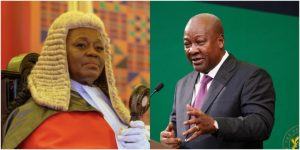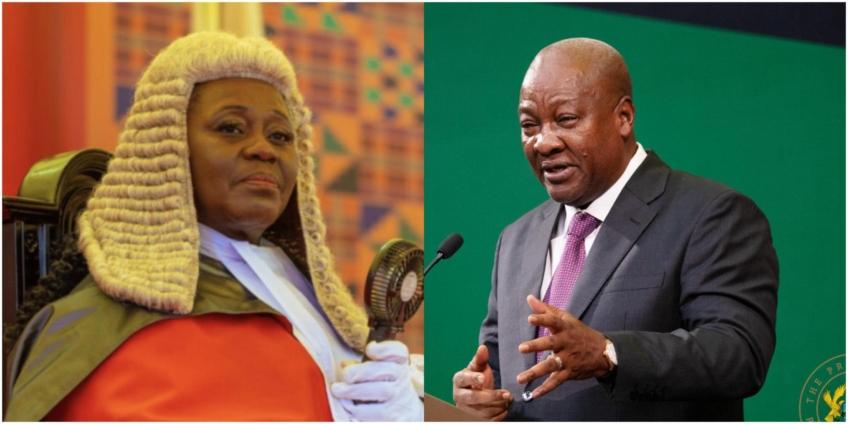
Accra, Ghana//-The West Africa Democracy Solidarity Network (WADEMOS), an organisation with members across all 15 countries in the ECOWAS sub-region, has called on all stakeholders, democracy actors in West Africa, to prioritise growing threats to democracy, peace and security in the region.
The NGO made the call in a statement it issued this month after carefully assessing threats engulfing some parts of the region.
The statement expressed deep concern about recent disturbing incidents that could worsen the already deteriorating political and security environment in West Africa.
TOGO
The Network expressed disapproval of and is concerned about President Faure Gnassingbe’s forceful and deliberate attempts to retain power in the Republic of Togo, particularly with his recent swearing in as the President of the Council of Ministers, without a defined term limit for this position.
In April 2024, WADEMOS condemned the constitutional reform process that empowered the president to make this decision, inter alia, for failing to seek the buy-in of citizens, civil society, and other stakeholders within the political sphere. Barely a year down the line, Togolese citizens, mainly the youth, have trooped onto the streets demanding better governance and accountable leadership.

“While we call for peaceful protests, we denounce the government’s handling of the demonstrations. The clampdown and repression of activists pose a significant threat to political stability not only in Togo but throughout the entire West African region. The extension of presidential terms has historically been a significant setback for democracy, disrupting the fragile peace and security landscape across West Africa”.
CÔTE D’IVOIRE
The WADEMOS also expressed its objection to President Alassane Ouattara’s intentions of seeking a fourth term in the country’s October 2025 elections, following his party’s recent nomination. This development is particularly alarming as it coincides with the disqualification of several key opposition leaders, which raises significant fears about the shrinking democratic space and escalating political tensions in the country.

“Much as we condemn these developments, we urge the Ivorian authorities to uphold constitutional principles and to ensure that the electoral process remains inclusive and transparent, devoid of actions that could further undermine political stability and erode public trust in the democratic process. The commitment to fair and open elections is essential for fostering a healthy democracy and maintaining peace in the region”, it stated.
GUINEA
In Guinea, there is an ongoing use and sustained weaponisation of state security forces and the judiciary against opposition and government critics calling for democratic elections and transition to civilian rule, the Network noted.
This situation is similar to what has been observed across the sub-region, where leaders employ tactics such as intimidation, unlawful arrest, harassment, and force to stifle dissent. The Network recognised this trend as part of a broader strategy among military and authoritarian regimes in the sub-region to maintain their grip on power by suppressing opposing viewpoints.
GUINEA-BISSAU
The Network is alarmed by the ongoing political instability in Guinea-Bissau, occasioned by the disputed mandate of the government and the postponement of elections to November 2025. These actions undermine constitutionalism and threaten democratic principles.
WADEMOS also condemned any efforts to delay the democratic transitions, urging the government to respect the rule of law, ensure transparency, and prioritise dialogue to safeguard national and regional stability. WADEMOS further condemned the restrictions on the freedom of assembly, which have created an unequal playing field for political parties as elections approach.
GHANA
The recent suspension of Ghana’s Chief Justice, Gertrude Torkornoo, has ignited growing concerns about the independence of the judiciary. This action has resulted in a series of legal disputes and faced criticism from civil society, with many questioning the lack of transparency in the process. WADEMOS urges all actors to uphold due process, respect the rule of law, and safeguard the integrity of Ghana’s democratic institutions, especially the judiciary, which remains a significant arm of government with the power to check executive overreach and dominance.
Ghana’s exemplary democracy in the sub-region and its enviable democratic credentials must serve as a constant reminder to all parties involved in deciding on the petition to remove the Chief Justice to respect constitutionalism and democratic principles.
AES-ECOWAS ENGAGEMENT
The Network said: “We continue to monitor the emerging dynamics actively between the Alliance of Sahel States (AES) and the ECOWAS, particularly in light of the withdrawal of Burkina Faso, Mali, and Niger from the regional bloc.
The Network commends both parties for their commitment to peaceful dialogue and to finding an amicable solution to the withdrawal of the three states. This is necessary because of the significant risks to regional security, trade, and the free movement of people”.
RECOMMENDATIONS
Reconsider constitutional reforms in Togo – It is imperative for the Togolese government to urgently reconsider its actions that have resulted in the political tension in the country.
These actions could jeopardise regional integration and harmony, given its status as an active member of ECOWAS. We reiterate our call for Togo to adhere to ECOWAS’ Supplementary Protocol on Democracy and Good Governance, as well as the established tradition of conducting a public referendum for any significant constitutional reform.
Ensure respect for the rule of law and free and fair elections in Guinea-Bissau – WADEMOS calls for an even and competitive political environment in the lead-up to the general elections and further urges the government to uphold the rights of all citizens, fostering an atmosphere of peace, stability, and harmony. The Network remains committed to supporting the transition process in Guinea-Bissau.
Accelerate transition to democratic governance in Guinea: We anticipate that ECOWAS will expedite the transition process in Guinea to restore constitutional rule and ensure the protection of activists, as well as human rights and democracy defenders.
Respect term limits in Togo and Côte d’Ivoire: To safeguard democracy and maintain stability within the sub-region, we urge the governments of Togo and Côte d’Ivoire to reverse their decision to hold on to power despite resistance from their citizens.
This is a critical time for African nations to collaboratively tackle the issue of term limits in the region. We further call on ECOWAS to actively engage stakeholders in Togo and Côte d’Ivoire to find a peaceful solution to the impasse.
Protect rights and freedoms of all persons: WADEMOS extends solidarity to human rights defenders and activists who have had to relocate due to threats to their lives and families. Additionally, we join the regional and global calls for the immediate release of activists who have been detained for exercising their right to criticise their governments, particularly in Guinea and Burkina Faso.
WADEMOS urged the international community, including ECOWAS and human rights organisations, to amplify calls for restraint and respect for rights and freedoms across the West African sub-region. Specifically, we appeal to the African Commission on Human and Peoples’ Rights (ACHPR) and the Special Rapporteur on Human Rights Defenders to address the situation in Guinea and the AES.
Undertake judicial reforms in Ghana: WADEMOS called for urgent reforms to restore public trust, confidence, and strengthen the independence of the judiciary. We further call on the Committee hearing the petition for the removal of the Chief Justice to ensure due regard to democratic principles and values.
Encourage AES-ECOWAS Cooperation: The Network commended the growing, constructive relationship between the AES and ECOWAS in negotiating an exit framework. All parties should commit to ongoing negotiations and focus on rebuilding trust between the two blocs, including agreeing to the potential return of Burkina Faso, Mali, and Niger to ECOWAS. This act will significantly enhance regional stability, security, and democracy.


